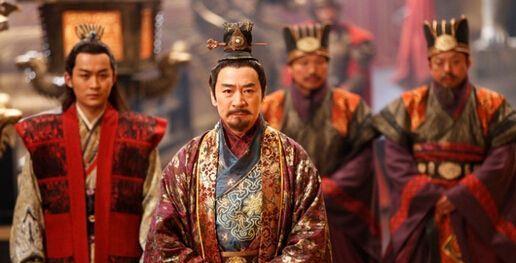The children born to concubines are not only called aunts, but the humble status of these concubines and concubines is also reflected in other aspects.
Yangzhou Hailing County Cheng Zhang Guan has two sons, the eldest son is Shuzi, the second son is Concubine, in Zhang Guan's epitaph, the ranking of concubines is before Shuzi, it can be seen that under the patriarchal system, the eldest and youngest order also have to give way to the difference between the honor and inferiority of Concubine.

At the beginning of the Tang Dynasty, there was a minister named Qiu Xinggong, who had followed Tang Taizong to eliminate Xue Ju, Liu Wuzhou, Wang Shichong, Dou Jiande and other separatist forces, and made great military achievements, but because he and his brother-in-law rushed to bury their father's concubine, that is, their birth mother, Qiu Xinggong was impeached by The Fasi and was severely punished by his removal.
It was already against human morality for Shuzi not to be eligible to bury their birth mother, and the worst thing for Shuzi might be that they had been stripped of their inheritance rights. Although there is a stipulation in the Tang Laws: "No concubine and guilty disease, establish a concubine; no concubine, and a second concubine with a mother and brother; no mother, a concubine; no concubine, no concubine; no concubine, no concubine; no concubine, no concubine; no concubine, no concubine; no mother, no concubine; no concubine, no concubine; "That is, in the absence of a concubine, it is possible to establish a son as an heir, but unfortunately this is far from the case.
Fuzhou Assassin Emperor Fuwei successively married two daughters of Zhongshu Ling Bai Minzhong, but the two White Ladies died early, and Emperor Fuwei had only one son under his knees, but it was not this concubine who inherited the incense of Emperor Fuwei in the end, but Emperor Fuwei's nephew. This typical phenomenon shows that if a nobleman does not have a concubine, he would rather let his nephew succeed him than let the concubine inherit the incense, which shows that the status of the son born of the concubine is so low that even the nephew is inferior.
Moreover, this situation of not treating the son of a son as an heir is obviously not an isolated case. Like Emperor Fuwei, at least he could have a nephew to succeed him, and the inspector Yushi Tang Sili even married three wives died prematurely, although there were two concubines, Tang Sili did not choose one of the two sons as an heir, and his epitaph directly wrote the word "no heir". Although these examples do not mean that all nobles will ignore the inheritance rights of the shuzi, the inferior status of the shuzi is evident.
Under such a dehumanizing system, a humble concubine could not preside over family affairs and could not be buried with her husband when she died; a concubine could not call her mother to her own birth mother, could not be buried in death, and had no right to inherit the family business.
Although this kind of system of concubines can solve the problems of power and property inheritance, it is a serious challenge to human nature
。 If the son is filial and has a deep affection for the birth mother, this is a great torture for the mother and son; if the son has a relatively cold temperament and disdains to recognize his birth mother, it is even more harmful to the birth mother itself.
Looking at the Tang Dynasty's marriage system of different concubines and strict hierarchy of honor and inferiority, it is no wonder that Bai Juyi told everyone bluntly at the beginning of "The Silver Bottle at the Bottom of the Well" that the purpose of his poem was to "stop adultery and run", trying to dissuade the young girls who had just opened their hearts, not to be impulsive for love, "for the sake of the king's one day, mistaken concubines for a hundred years". After all, for the aristocratic men who are accustomed to the wind and moon, challenging the feudal etiquette system should only add a feud at most, while for the weak women in feudal society, one step wrong will only face the unbearable situation of being a concubine for a long time and eventually affecting the children.